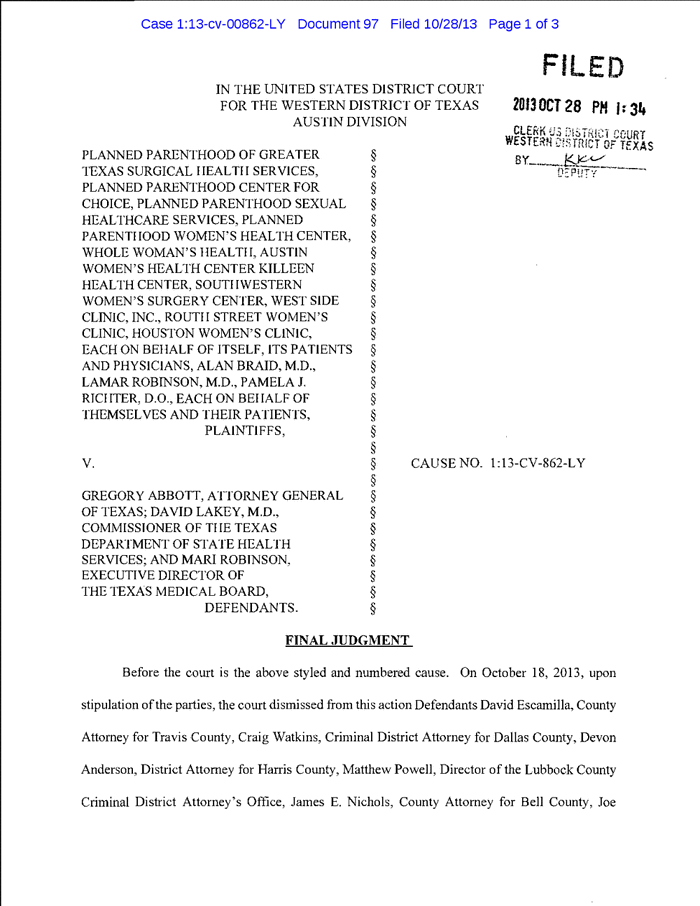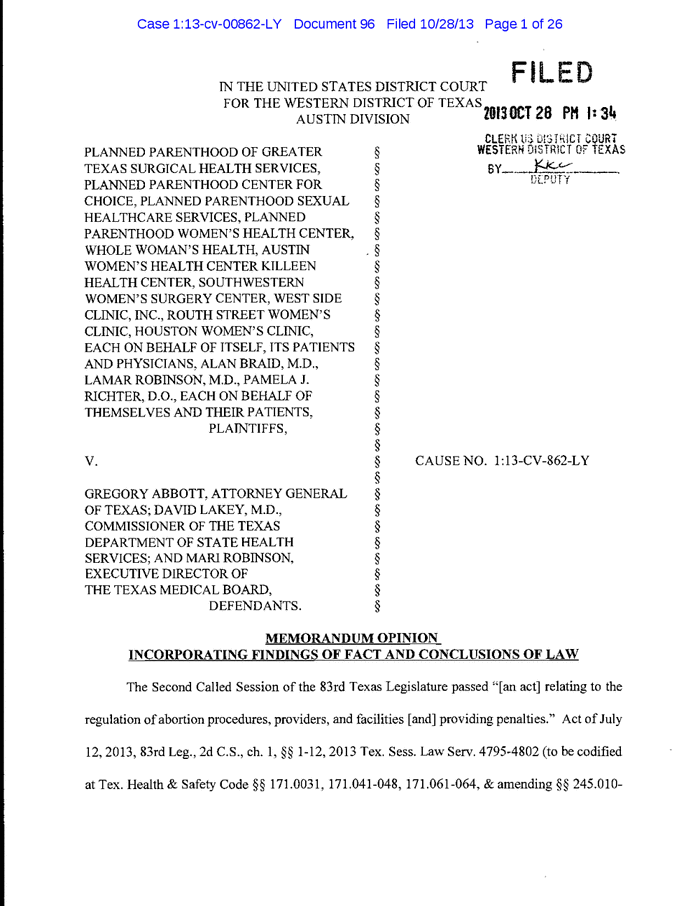
A federal judge Monday found portions of two provisions of the recently passed Texas law relating to abortions to be unconstitutional, stopping enforcement of those parts of the law for the time being.
U.S. District Court Judge Lee Yeakel, applying recent Supreme Court decisions on abortion to the new Texas law, found fault with two provisions. One required that doctors performing abortions have "active admitting privileges" at a hospital within 30 miles from the location where the abortion is to take place. The other placed restrictions on drug-induced abortions.
Although state officials are expected to appeal the decision, Texas Attorney General Greg Abbott's office did not provide any immediate comment on the decision.
Yeakel held, in a challenge brought by Planned Parenthood against Abbott and others, that "the act's admitting-privileges provision is without a rational basis and places a substantial obstacle in the path of a woman seeking an abortion of a nonviable fetus," which the court found to be unconstitutional.
As for the other provision, the court upheld the drug-induced abortion restrictions generally but found one aspect to be unconstitutional, writing that "the act's provisions that place restrictions on medication abortions do not place such an obstacle, except when a physician finds such an abortion necessary, in appropriate medical judgment, for the preservation of the life or health of the mother."
The judge halted enforcement of the admitting-privileges provision and, to the extent needed to preserve the life or health of the mother, the drug-induced abortion provision.


